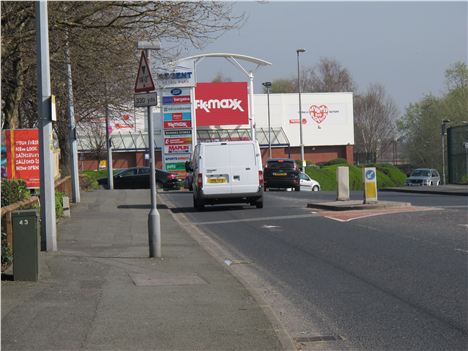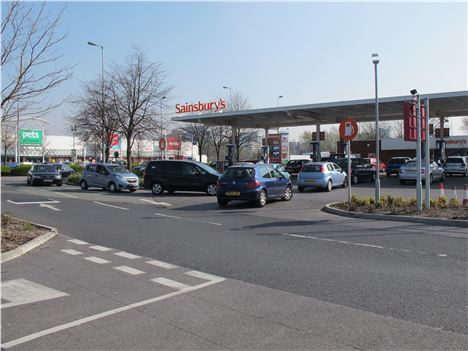THE nation got itself worked up on Wednesday and started panic buying petrol. Greater Manchester was no exception.
Following some questionable government advice, drivers began flocking to garages to fill up their vehicles amid threats of a tanker drivers’ strike.
If drivers followed normal fuel buying patterns there would be no fuel shortage whatsoever
Confidential paid a visit to a couple of forecourts in Salford on Thursday and it seems efforts to clarify those comments fell on deaf ears.
With reports of some petrol stations running dry, the Shell garage on Regent Road was perhaps a little fortunate to have a tanker busy replenishing its supplies when we stopped by — but it was certainly necessary.
The pumps were all in use when we arrived and during the next couple of minutes ten more vehicles showed up and joined the queue. And, at roughly 11am, it wasn’t even peak time.
Meanwhile, the Sainsbury’s garage across the road was back in business after running dry on Wednesday night and had a queue that extended all along the access road and out on to Ordsall Lane. It seemed that for every car that left, two new ones arrived.
 Queues get in the way of traffic on Ordsall Lane
Queues get in the way of traffic on Ordsall Lane
The mass hysteria will have lined fuel bosses’ pockets nicely — the Petrol Retailers’ Association reported an 81% rise in petrol sales. We received evidence of petrol prices touching scraping £1.50.
Although a date for the strike has not yet been set, drivers were advised to keep tanks ‘topped up’. However, this has been criticised in some circles for encouraging people to stockpile petrol and causing unnecessary shortages.
In particular, Cabinet Office minister Francis Maude’s suggestion to fill up spare jerry cans as a precautionary measure has been labelled ‘irresponsible’ and ‘dangerous’.
AA president Edmund King said: “If drivers followed normal fuel buying patterns there would be no fuel shortage whatsoever.”
It’s also worth noting, before rushing out the nearest petrol station, that Unite, the union in question, has to give notice of the strike seven days in advance. This means drivers that filled up their tanks in a mad panic will almost certainly have emptied them again by the time any industrial action takes place.
It remains to be seen how the strike will affect motorists and the fuel industry, but now is the time for a bit of common sense, not panic.
You can follow Paul on Twitter @paulberentzen












